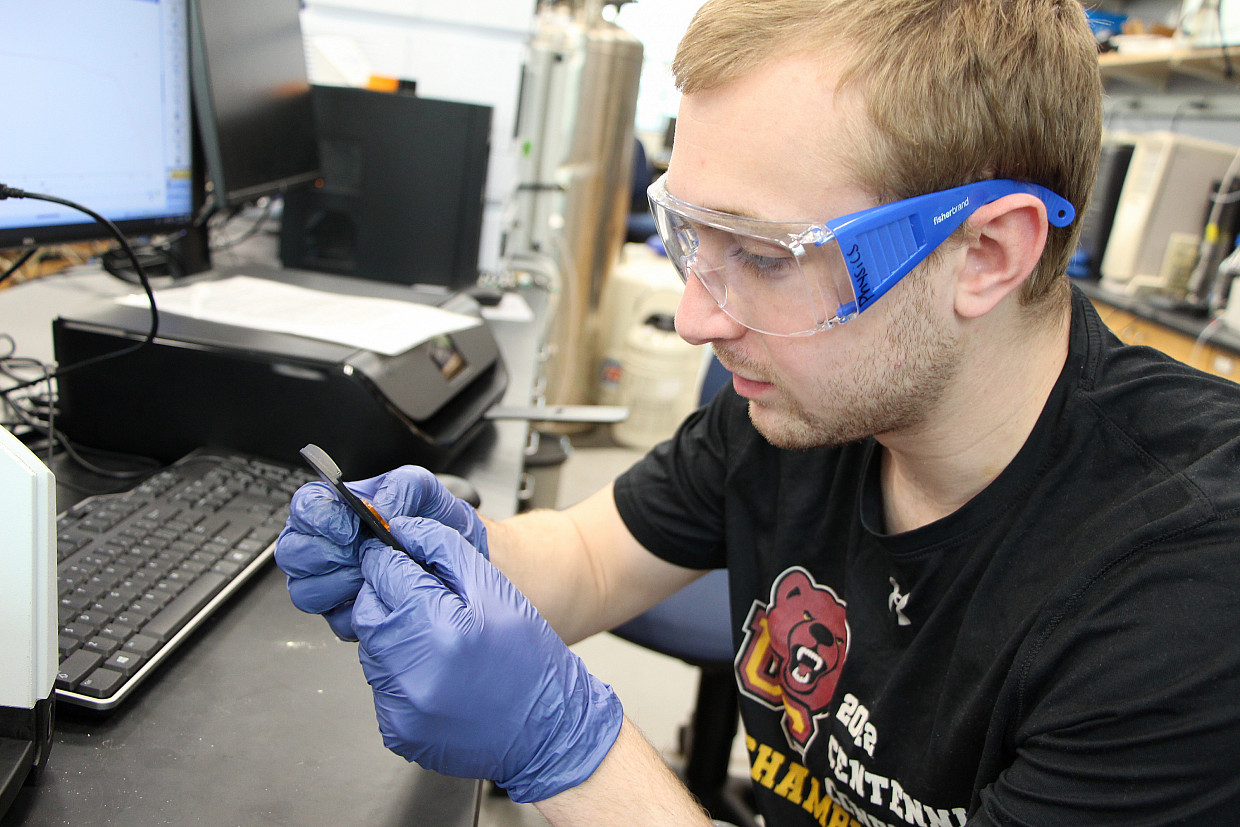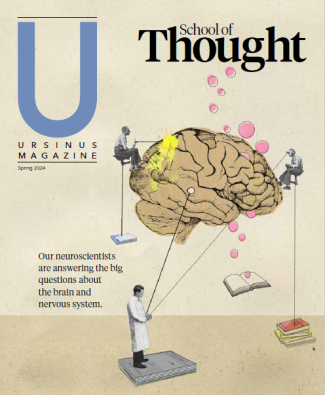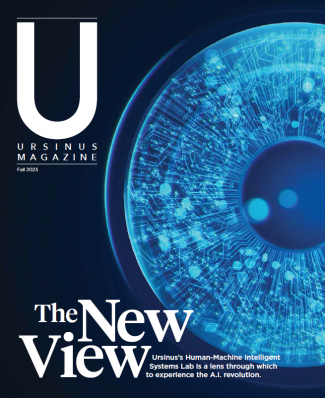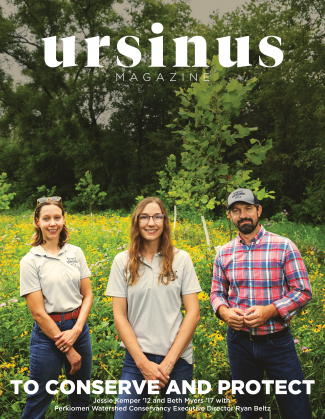
Ursinus College Co-Leads Groundbreaking Research on Infrared Glass Recycling
A $1.2 million grant from The American Center for Optics Manufacturing (AmeriCOM) funds an innovative collaboration with the University of Central Florida.
A collaboration between Ursinus College and the University of Central Florida (UCF) in Orlando is revolutionizing the recycling and recovery process of infrared glass—something that could have far-reaching implications for sustainability and technological advancement.
The American Center for Optics Manufacturing (AmeriCOM) has awarded the two institutions $1.2 million to support the research, with about $900,000 specifically earmarked for Ursinus’s physics department.
“This grant demonstrates a significant investment in advancing our understanding of multicomponent chalcogenide infrared glass and it’s potential for reuse from a manufacturing standpoint,” said Casey Schwarz, associate professor and chair of physics at Ursinus and principal investigator on the project. “This translates into more exciting and versatile IR glass compositions and applications while promoting sustainability.”
Infrared (IR) light is invisible to the human eye because its wavelength is longer than the visible spectrum, but it can be detected using infrared-specific materials, like IR glasses.
Those materials have a wide range of application in the field of optics, photonics, and electronics. But as the attractiveness of using amorphous IR chalcogenide glass (ChG) in broadband optical systems for defense and civilian applications continues to expand, so do the issues associated with raw material costs.
The two institutions are working alongside industry partners on the development of recovery and recycling processing methods and performance implications for IR glass materials.
Schwarz said this area of research is entirely unexplored as most commercial glass vendors’ material processing and waste handling protocols are considered proprietary. So, the work could have major implications on future manufacturing waste reduction.
Schwarz’s collaborators from CREOL, the College of Optics and Photonics at UCF, are Rashi Sharma, a Research Scientist in UCF’s Optical Materials Laboratory (OML) and PI for the UCF team, and Kathleen Richardson, UCF trustee chair, Pegasus professor of optics and materials science and engineering, and Florida Photonics Center of Excellence professor.
“We envision this effort to be a low-risk, high-impact initiative to evaluate methods to support the recovery of ChG materials currently discarded during manufacturing, improving the sustainability of the material manufacturing process of IR glass,” Richardson said. “We are eager to collaborate with Ursinus College and leverage our collective strengths to make meaningful contribution to the field of glass science and sustainability.”
Sharma added, “Hopefully our work will help to reduce the expense of high-cost raw materials as well as waste costs which aligns well with the International Year of Glass goals of promoting sustainable development and advancements in industry and innovation.”
The grant from AmeriCOM will support the training of undergraduate and graduate students, purchasing of materials and processing, and their subsequent characterization.
Jake Klucinec ’25, an Ursinus physics major, will be spending his summer at UCF in Richardson’s Optical Materials Lab (OML), contributing his expertise and passion to the project. UCF graduate student Mark Martino will also be involved in the project as a direct mentor to Jake.
“Jake’s involvement underscores the commitment to nurturing young talent and fostering interdisciplinary collaboration in scientific research,” Schwarz said.
Klucinec added, “I am incredibly excited to be part of this project. This opportunity allows me to apply my knowledge and skills in physics to address real-world challenges while learning from leading experts in the field.”
Innovative research initiatives like these have the potential to make a large impact on society and the environment, Schwarz said, and through partnerships like the one between Ursinus and UCF, academic institutions can play a pivotal role in driving technological innovation and advancing scientific knowledge.


